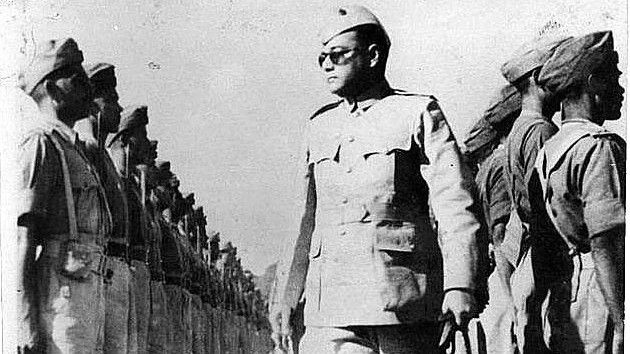
Netaji Subhas Chandra Bose Jayanti is celebrated on 23 January annually, marking the birth anniversary of one of India's most revered freedom fighters. Known as ‘Parakram Diwas’ or Courage Day, this occasion honors Bose's relentless commitment to India's independence. This year commemorates the 128th anniversary of his birth, allowing us to reflect on his significant contributions and impactful legacy.
Early Life And Qualifications
Subhas Chandra Bose was born on 23 January 1897 in Cuttack, Odisha, into the family of Janakinath Bose, a distinguished lawyer. An exceptional student, he completed his BA in Philosophy from Presidency College, Calcutta.

Influenced by Swami Vivekananda and Ramakrishna, he fostered a profound sense of patriotism from a young age. Bose moved to England for the Indian Civil Services Examination and achieved great success, ranking fourth. However, he resigned in 1921 upon being inspired by India’s nationalist movements.
Bose Joined Congress
Bose became a prominent member of the Indian National Congress (INC), notably involved in the Non-Cooperation Movement under Mahatma Gandhi. He later rose to the position of Congress General Secretary in 1927 and became the INC President in 1938.

In pursuit of a vision for rapid industrialization, he established the All India Forward Bloc in 1939 to unite radical factions and advocate for complete independence.
Azad Hind Fauj Was Established
Azad Hind Fauj, also known as the Indian National Army (INA), is one of Netaji Subhas Chandra Bose’s significant contributions during World War II. Originally established by General Mohan Singh with support from the Indian Independence League in Southeast Asia, Bose assumed leadership in 1943 after escaping to Singapore.

Under his command, the INA expanded to 45,000 soldiers, comprising Indian prisoners of war and expatriates. On 21 October 1943, Bose proclaimed the Provisional Government of Free India and raised the Indian flag in the Andaman and Nicobar Islands. The INA's motivating slogans, like “Delhi Chalo” and “Jai Hind”, encouraged many Indians to engage in the fight for independence.
Unmatched Bravery And Legacy Of Netaji
Bose's legacy is marked by his boldness and leadership, encapsulated in powerful slogans such as “Tum Mujhe Khoon Do, Main Tumhe Aazadi Dunga” (Give me blood, and I will give you freedom). He also highlighted the crucial role of women in the movement, exemplified by the Rani Jhansi Regiment led by Captain Lakshmi Swaminathan.

Despite the tragic end of his life in an air crash in 1945, his contributions remain an enduring source of inspiration for future generations, celebrating his vision and unwavering commitment to India’s freedom as we honor his legacy during Netaji Subhas Chandra Bose Jayanti 2025.